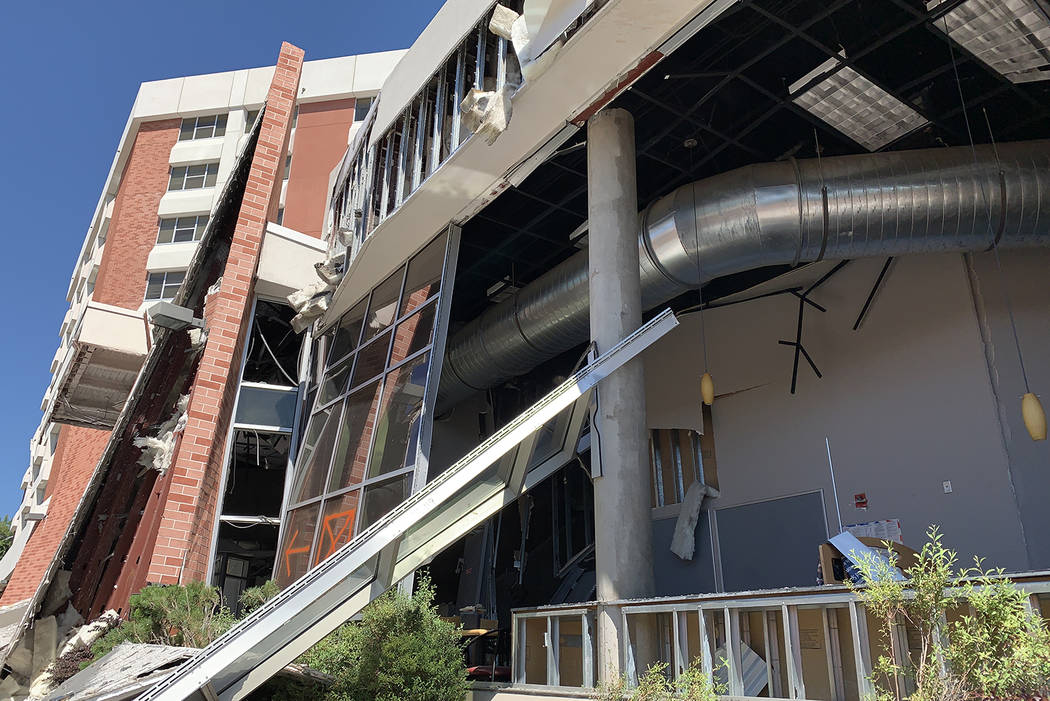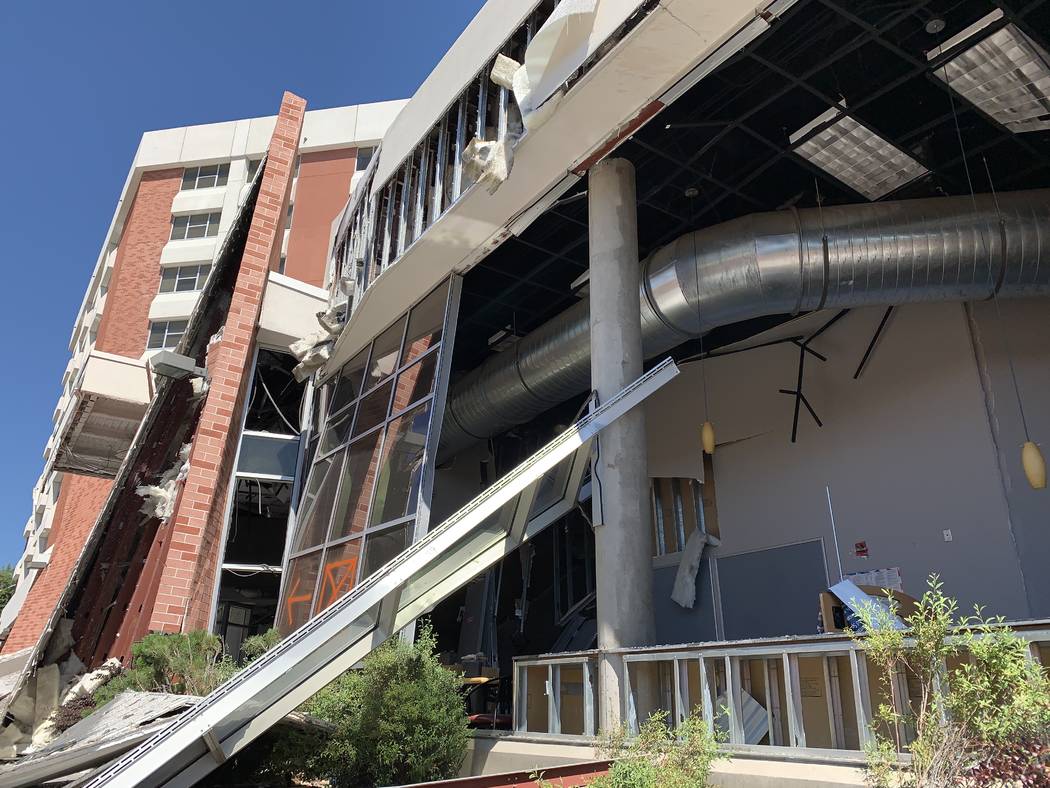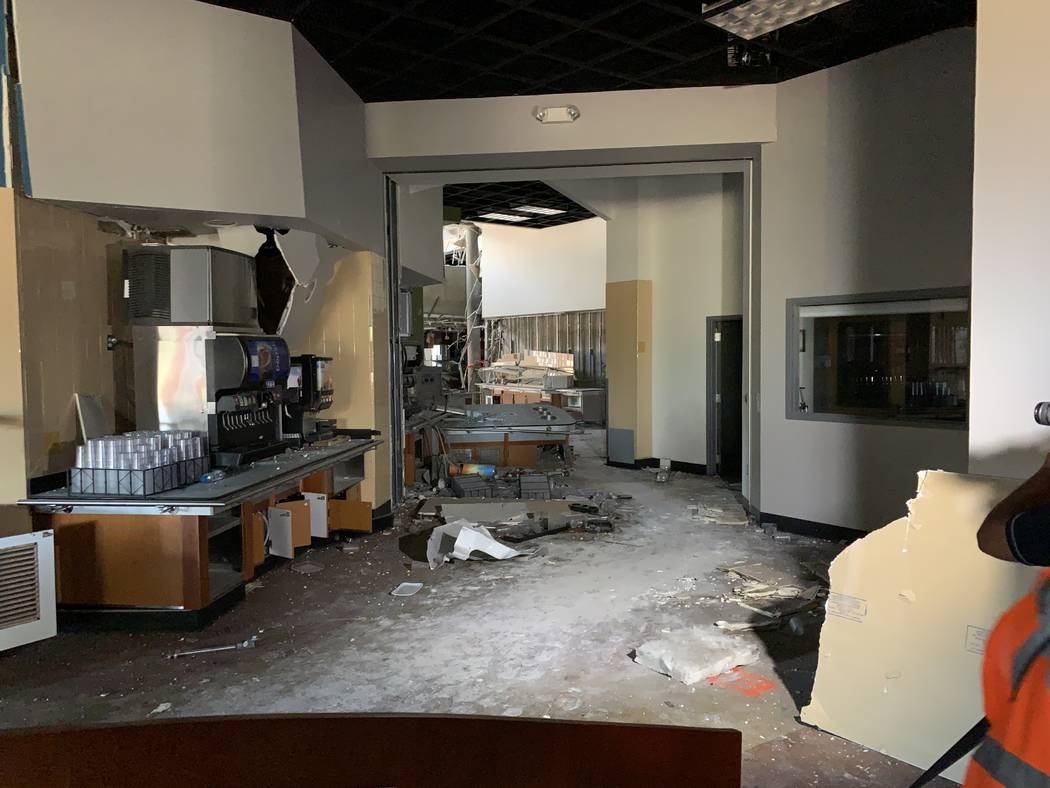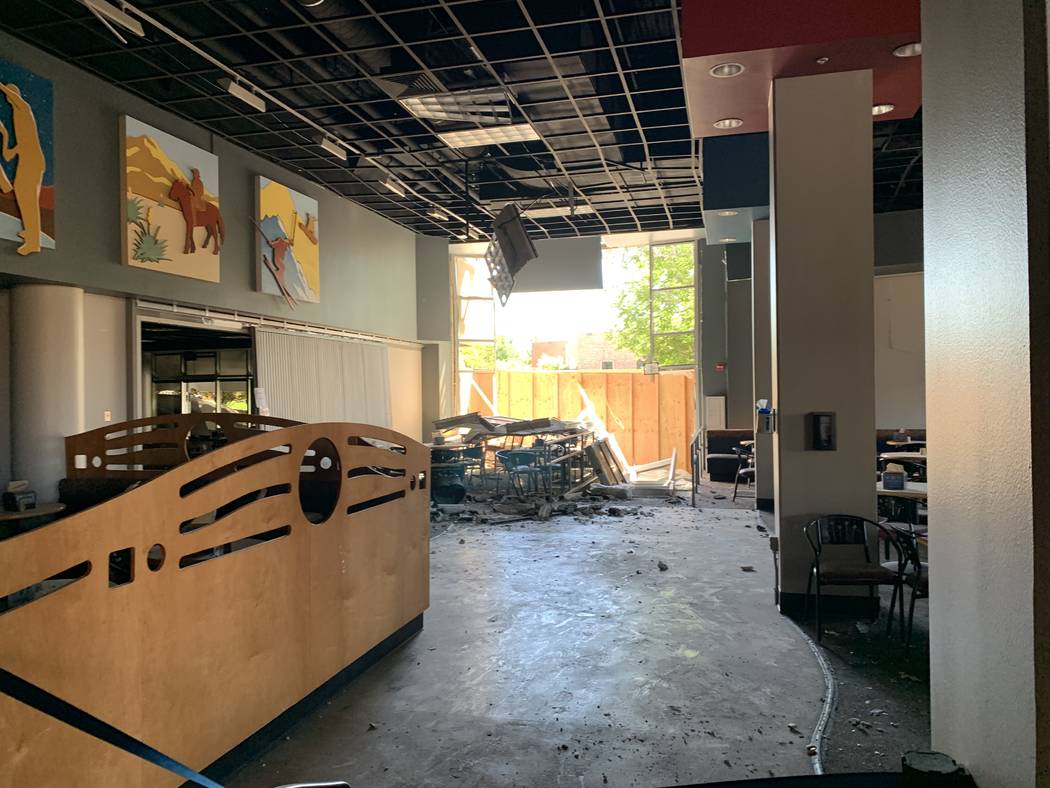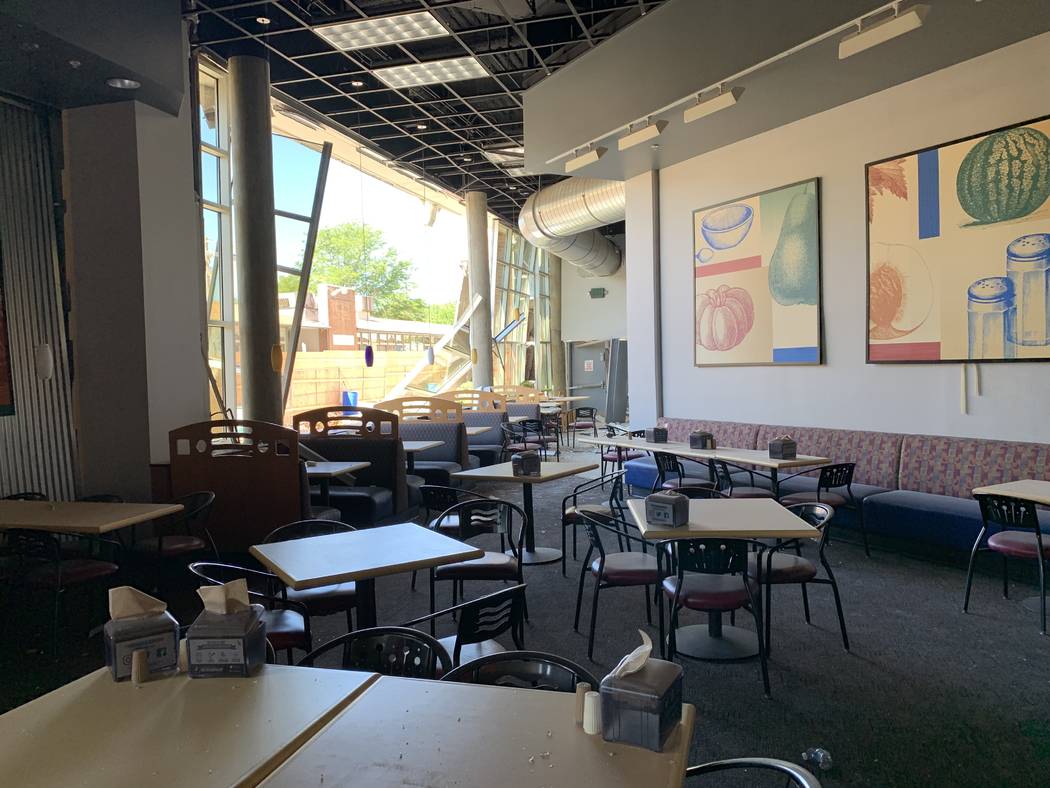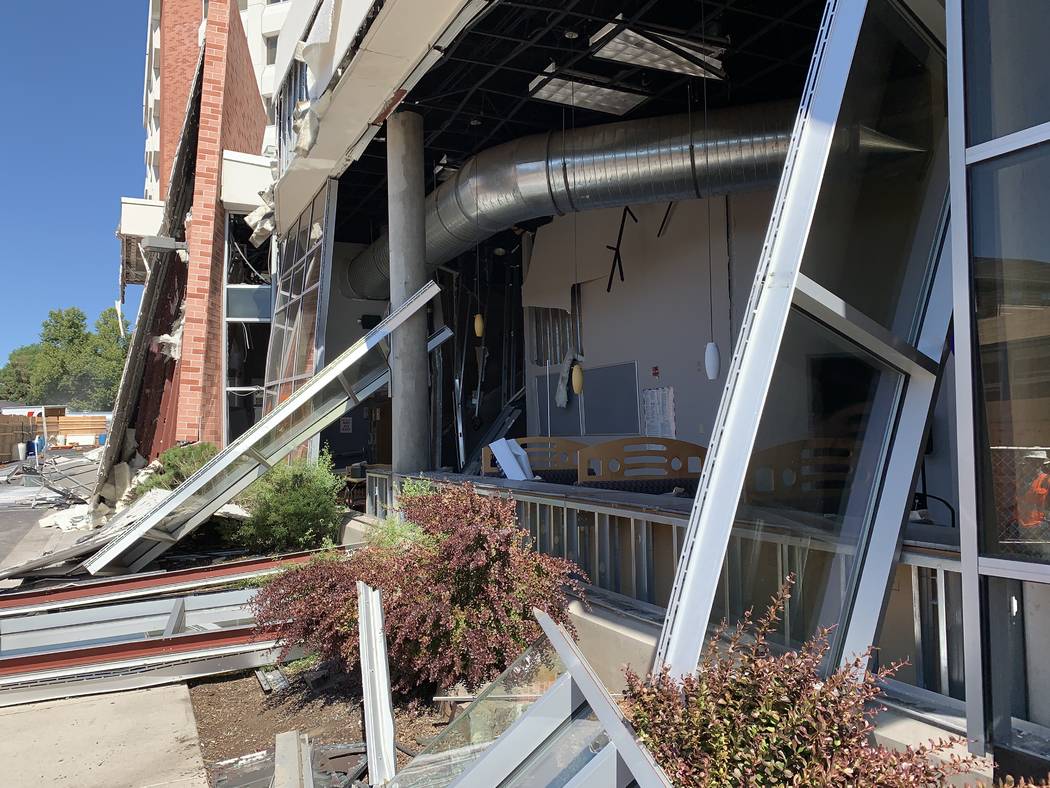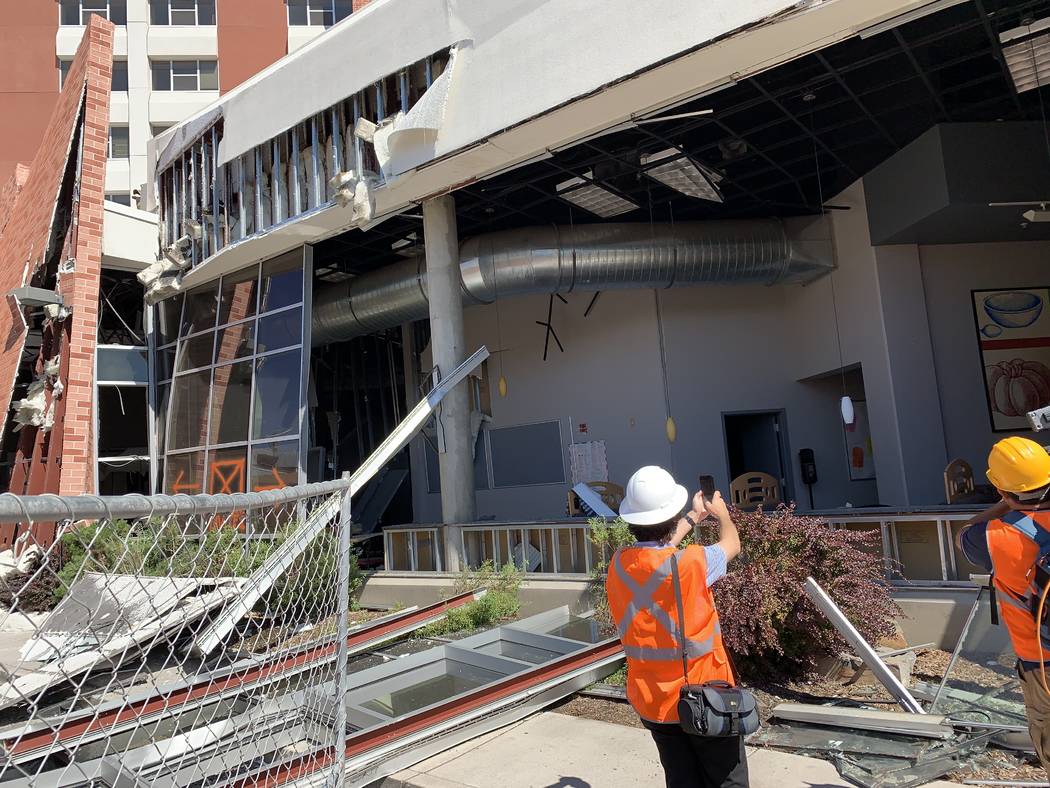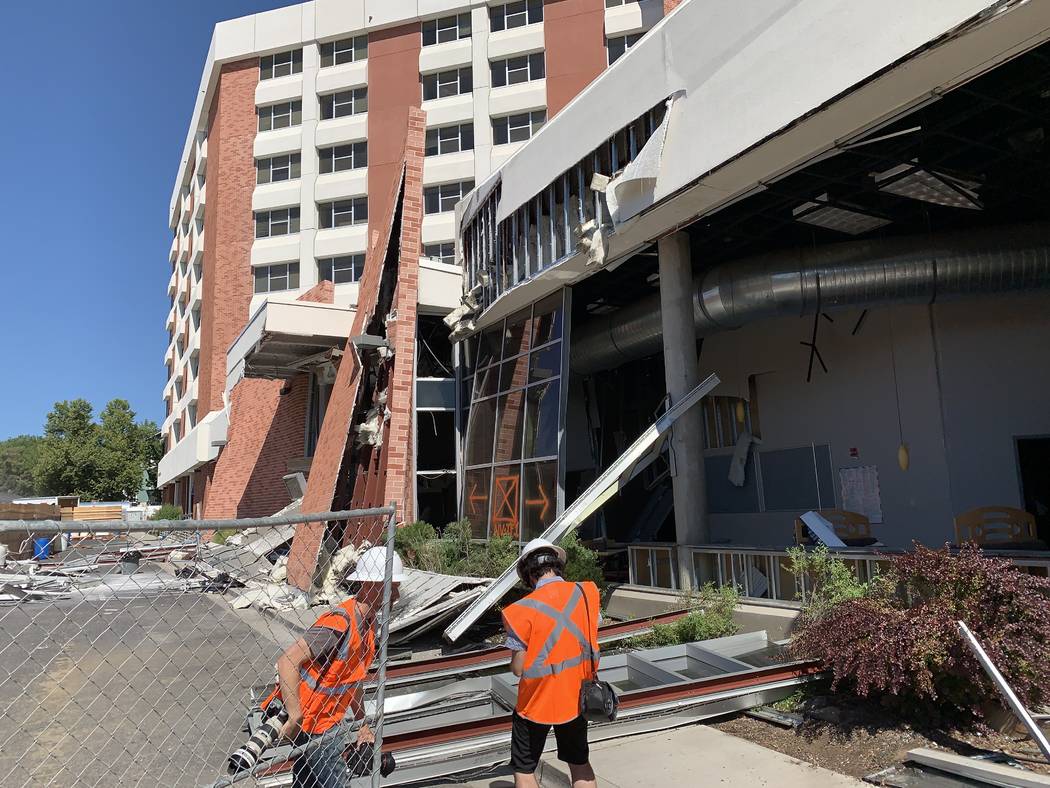UNR dorm explosion triggered by faulty boiler
CARSON CITY — A long-awaited report on the July 5 dormitory explosion on the University of Nevada, Reno campus confirms initial reports that a “catastrophic failure” in the building’s boiler set off a series of events that prompted two back-to-back explosions.
But the investigation could not determine the source for the second, more damaging explosion that injured eight people, including six students, in the pair of explosions in the boiler room of Argenta Hall dormitory.
A summary of the report from the area fire marshal and the state Department of Public Safety, released Thursday afternoon, notes that the boiler went into “safety mode” on July 1, several days before the blast, which indicated a problem. A service technician diagnosed a faulty servomotor in the boiler, and it was shut down until the replacement part could be installed.
The explosions occurred when the repair work was being done on July 5. The first occurred about 12:47 p.m., severing a 3-inch natural gas line.
“This first explosion resulted in a fire, fueled by the natural gas, which ran up the wall left of the boiler,” the report summary said. That fire triggered an alarm and was extinguished by the automatic fire suppression system. The technician turned off the gas, but enough had escaped to fuel the second explosion, the report said.
“Natural gas from the severed pipe had already allowed approximately 6,000 cubic feet of flammable gas to enter the basement area,” according to the report. “The natural gas filled the first floors and the elevator shaft adjacent to the boilers.”
The gas was ignited by “one of several potential ignition sources,” which caused the second and largest explosion. Those possible sources could have been cafeteria cooking equipment, dormitory laundry equipment, elevator cars operating or “an unspecified tenant ignition source.”
In the investigative report, Eric Guevin, fire marshal for the Tahoe Douglas Fire Protection District, described the pre-explosion series of events in greater detail.
The boiler technician said he replaced the broken part but the boiler was “not firing right,” and he turned it off. The technician then saw a “wall of fire ‘similar to flame thrower’ and the boiler blew.”
The technician ran out of the boiler area and yelled for people to evacuate and sound the alarm, then went to shut off the gas outside the building with the help of a UNR maintenance worker. The worker had heard the explosion and “thought it might have killed” the technician.
The second explosion happened approximately as Reno firefighters arrived just after 1 p.m, leading investigators to believe that gas was escaping into the building for as long as 17 minutes.
Guevin cited four distinct events:
■ A mechanical failure caused by a boiler backfire while the new part was being installed.
■ A “large gas fire” from the initial explosion that severed a gas main.
■ The free flow of gas after the initial fire was extinguished by sprinklers.
■ The second explosion when the escaped gas was ignited by an unknown ignition source.
In a statement, UNR President Marc Johnson said the report made clear “that every aspect of this incident was considered and that the very best people with the knowledge necessary for a thorough investigation were involved.”
“We have anxiously been awaiting this report and can now better understand the events that led up to this unprecedented event,” he added. “We are very fortunate and grateful that while there were minor injuries, there were no fatalities, and the explosion was not criminal or terror-related.”
At the time of the blast, Argenta Hall housed about 400 summer-term students. Adjacent Nye Hall dorm also was damaged.
Both buildings are closed for repairs for the entire current academic year. UNR hopes to reopen Nye Hall in 2020 and Argenta Hall in 2021. In the meantime, UNR has arranged for some 1,300 students normally housed in the two dorms to live in the Sky Tower of Circus Circus Reno, about half a mile from campus.
The boilers in Argenta Hall had been inspected most recently in January 2018 and had no history of violations, according to UNR’s FAQ page on the explosion and its aftermath.
Contact Bill Dentzer at bdentzer@reviewjournal.com or 775-461-0661. Follow @DentzerNews on Twitter.



